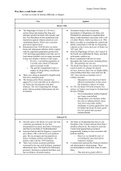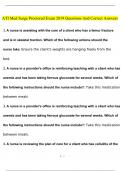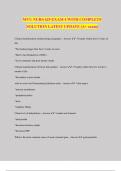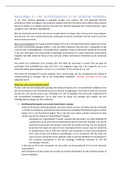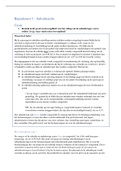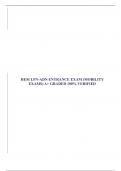Essay
Evaluations and judgements on the mid-Tudor crisis of
- Module
- A level history
- Institution
- A Level History
Set of tables out-lining reasons for and against a mid-Tudor crisis, broken down for Henry VIII, Edward VI and Mary I. Final written interpretations for each monarch and an overall judgement for the entire period is given.
[Show more]
